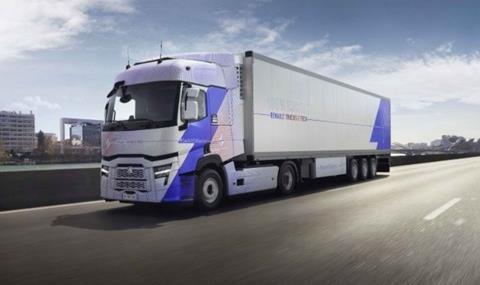
Renault Trucks has launched E-Tech which offers 360 degree support for customers transitioning to electric vehicles.
The move comes as the manufacturer reports expanding sales volumes of electric trucks with 249 delivered globally in 2021 and 613 ordered.
The manufacturer plans for 50% of its global sales to be electric by 2030 and has pledged that by 2040 all vehicles sold will be fossil free.
E-Tech has been launched to support this expansion and is set to replace the current offer of Z.E electric trucks.
The OEM said this week that its E-Tech offer is made up of a range of high-performance electric vehicles and all-round support for customers, from their initial purchase to monitoring the operations of their electric trucks.
Read more
- A quarter of Renault Trucks sales in UK to be electric by 2025
- Renaults finally on stream at Salford Van Hire
- ‘Renault tippers won’t give us breakdown problems,’ plant hire firm insists
This 360° support is structured in four phases which will see Renault Trucks firstly help customers draw up their decarbonisation plans and analyse and define their needs.
A second phase involves use of simulation tools to help customers make decisions and monitor their activity, such as a carbon emission reduction simulator and a range simulator to enable a detailed recommendation, which includes a roll-out schedule and a forecast of the reduction in CO2 emissions for the coming years.
In the third phase, Renault Trucks will offer solutions includes financing, which take into account local or governmental subsidies, the definition and setup of the complete truck with its equipment and bodywork, on-site charging facilities, and maintenance agreements. It is at this stage that Renault Trucks will provide its customer with an electric truck, so that it can be tested in real working conditions.
In the final phase, Renault Trucks acts as the project manager for the customers' decarbonisation solution, overseeing installation of on-site charging facilities, training of drivers and fleet administrators.
The OEM and its network will also support customers in the operational monitoring of their fleet, via vehicle connectivity. This involves the manufacturer monitoring the charging facilities, tracking driving and consumption and making suggestions for optimisation, recommending routes, and optimising maintenance operations.













